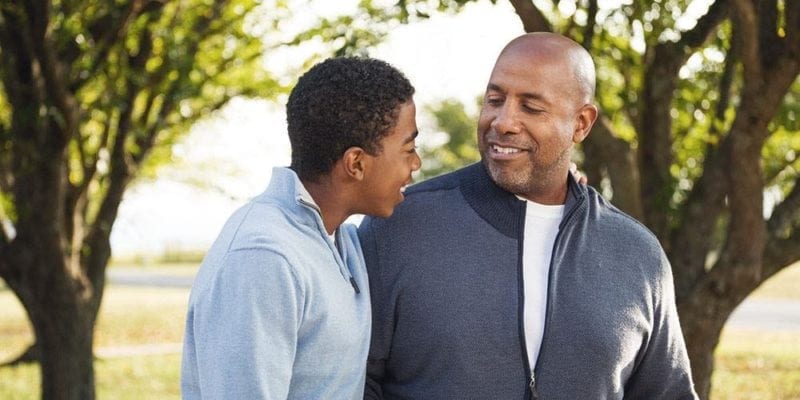I knew I was in trouble. I’d asked my 13-year-old son to go for a drive, and we got milkshakes. He was suspicious. Just going on a drive to get milkshakes? I started the conversation hesitantly: “Well, bud, I wanted to talk with you a little about, um, well… sex.” Immediately, he pulled his hood up over his head, hunched his shoulders, and started drinking his milkshake. Not exactly the beginning I hoped for.
But being an engaged dad means talking to your kids about hard topics because life is full of complexity, disappointment, and struggle. Here are the 5 hardest conversations you’ll have with your kids and how to do it.
1. Sex
The best advice I can give you for this is to start early. My wife was an early adopter of the idea that talking to your kids about hard topics should happen early so that when they’re older, it feels normal. Unfortunately, I dragged my feet, which made this much more difficult than it needed to be. Start early. Encourage questions. Be honest. It will only be as awkward as you make it. And, finally, have grace with yourself. If your parents didn’t do this with you, it’ll be awkward. Embrace it.
2. Death
For some of us, it’s the death of a pet. For others, it’s the death of a family member or friend. Of course, this can vary in its intensity, depending on how close the child is to the one who dies (and how close you are). My first experience of this was talking with my kids about the death of my dad. First of all, be honest about your own grief. Pretending you’re holding it together does nothing for your child except teach him or her that grieving is weird. Secondly, avoid easy answers. Especially avoid abominations like “it was God’s will” or “Heaven needed another angel.” Please, no. Easy answers don’t help. But sitting with your child in the sadness and holding him or her can be really helpful.
3. Suffering
Why do seemingly innocent people suffer? Philosophers and theologians have debated this for years. In fact, the book of Job is all about this question. And what does this ancient book have to tell us? In the end, the author seems to say, “The answer is beyond you.” In my opinion, this is a helpful framework for us as our kids ask difficult questions. Avoid giving easy answers and definitely avoid trying to pin the blame on someone. It’s best when your child notices the painful reality of suffering to simply acknowledge it, applaud your child’s compassion, and ask if there is some way you might be able to be a part of alleviating that suffering.
4. Racism
I’m white, so I have a very particular perspective on this and can only speak from my vantage point. I realize there are a variety of other needs and perspectives in this area. For those of us who are white dads with white kids, we need to emphasize to our kids the need to listen to the stories of people whose experiences are different from ours. In short, we need to model and cultivate empathy. Allow your child to ask questions. Be quick to say, “I’m not sure.” Share ways you’ve noticed prejudice in your own heart and ways you’ve had to change. Read books with your child that introduce different cultures and experiences. Talk about how your kids feel about those experiences and what questions they raise. And then have open and candid conversations about how what you know might cause you to live differently.
5. God
You may or may not believe in God, but inevitably, the topic will come up. As a parent, it’s your responsibility to instill in your children the values you want them to have. But if you, like me, want your kids to believe in God, here are a few suggestions. First of all, be honest about what you really believe. Secondly, allow them to ask hard questions. Nothing should be off-limits. And be willing to admit when you don’t have an answer. Third, use books and other resources to encourage conversation and to articulate things you may struggle to express.
Talking to your kids about hard topics is—hard. But it’s good and necessary work. You won’t do it perfectly. You don’t have to. But you do need to do it.
Earn some points: Are you married? If so, share this iMOM article with your wife: 5 Hard Topics to Talk About for Kids.
Sound off: What advice would you give about talking to your kids about hard topics?











Huddle up with your kids and ask, “What questions do you have about the world right now?”